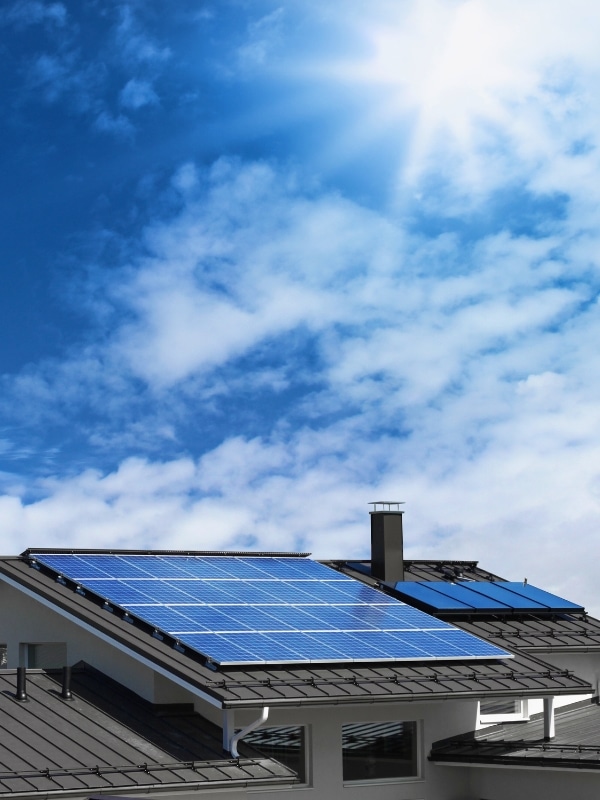Climate change is a major global concern, and its effects are felt worldwide. One area that is particularly vulnerable to climate change is the solar energy industry. Solar panels are a popular renewable energy source, but weather conditions can significantly impact their efficiency. In Australia, a country with a diverse climate, the impact of weather on solar panel efficiency is particularly pronounced.
Are you looking to save money on your electricity bills and reduce your carbon footprint? Solar energy is the perfect solution! Energy Matters is the leading supplier of solar quotes in Australia due to its vast partnership network of high-quality installers. With Energy Matters, you can be sure you’re getting the best possible deal on solar energy.
Understanding the relationship between climate and solar panel efficiency
The primary factor affecting solar panel efficiency is sunlight intensity. More sunlight means more energy can be converted into electricity. However, other weather conditions, such as temperature, humidity, and cloud cover, can also affect efficiency.
Solar panel efficiency and climate
Solar panels convert sunlight into electricity. The amount of electricity a solar panel can produce depends on several factors, including the intensity of sunlight, the angle of the sun, and the temperature. Weather conditions can significantly impact all of these factors.

- Sunlight intensity: The intensity of sunlight is the amount of solar energy that reaches the Earth’s surface. It is measured in watts per square meter (W/m²). The higher the intensity of sunlight, the more electricity a solar panel can produce. Weather conditions such as cloud cover, fog, and haze can reduce the intensity of sunlight.
- The angle of the sun: The angle at which the sun’s rays strike the Earth’s surface is the sun’s angle. The higher the sun’s angle, the more direct the sunlight and the more electricity a solar panel can produce. Weather conditions such as wind and rain can affect the sun’s angle.
- Temperature: Temperature can also affect solar panel efficiency. Higher temperatures can reduce the efficiency of solar panels. As the temperature of a solar panel increases, the resistance of the materials inside the panel also increases, reducing the amount of electricity that the panel can produce.
Solar and Australian weather
Australia experiences various weather conditions across its vast territory, from hot and dry summers in the interior to cool and wet winters in the south. These variations can significantly impact the performance of solar panels.
Temperature: Higher temperatures generally lead to decreased solar panel efficiency as higher temperatures increase the electrical resistance within the panel, reducing output. Excessive heat can also degrade the cells, reducing their lifespan. Australia’s hot summers can present a challenge in this regard.
Irradiance: Solar irradiance, the amount of sunlight reaching the Earth’s surface, is another key factor affecting solar panel efficiency. Australia receives high levels of solar irradiance throughout the year, making it an ideal location for solar power generation. However, cloud cover, dust, and other atmospheric conditions can reduce irradiance and impact solar panel output.
Humidity: High humidity can reduce solar panel efficiency by absorbing and scattering sunlight. Australia’s coastal regions often experience high humidity, slightly impacting solar panel performance.
Cloud cover: Cloud cover can significantly impact the amount of sunlight that reaches the Earth’s surface. When the sky is cloudy, less sunlight can reach solar panels, reducing efficiency. In Australia, the cloud cover can vary significantly throughout the year and from region to region.
Precipitation: Rain and snow can temporarily reduce solar panel output by blocking sunlight. Australia’s diverse rainfall patterns can influence the overall energy production of solar systems.
Wind: Wind can affect solar panel efficiency in both positive and negative ways. While it can help cool the panels and reduce heat-induced degradation, it can also increase drag and stress on the mounting structures.
Dust and pollution: Dust and pollution can accumulate on solar panels, reducing their efficiency by blocking sunlight. Regular cleaning is essential for optimal performance in areas with high dust and pollution levels.
Climate change: Climate change is also expected to impact solar panel efficiency in Australia. Rising temperatures and changes in precipitation patterns could affect solar irradiance, humidity, and other weather factors. It is crucial to consider the long-term effects of climate change when investing in solar panels.
Read more about:
The impact of Australian weather and climate on solar panel efficiency
Australia has a diverse climate with a wide range of weather conditions. This means that the impact of weather on solar panel efficiency can vary significantly across the country.
- Northern Australia: Northern Australia has a tropical climate with high temperatures and humidity. These can negatively impact solar panel efficiency. High temperatures can reduce the efficiency of solar panels, and humidity can reduce the intensity of sunlight.
- Central Australia: Central Australia has a hot and dry climate. This can be a good environment for solar panels. High temperatures can increase the efficiency of solar panels, and the dry climate can reduce the amount of cloud cover.
- Southern Australia: Southern Australia has a temperate climate with cooler temperatures and more rainfall than northern and central Australia. This can negatively impact solar panel efficiency. Cooler temperatures can reduce the efficiency of solar panels, and rainfall can reduce the intensity of sunlight.
The importance of solar storage systems
Solar battery storage systems have become increasingly popular to mitigate the challenges posed by Australia’s variable climate. These systems store excess solar energy generated during sunny periods for use during cloudy weather or at night. By storing energy, homeowners and businesses can reduce their reliance on the grid and achieve greater energy independence.
Use Energy Matters’ easy-to-use solar power and battery storage calculator to determine the size of your solar system with storage! Our solar calculator will generate performance information and potential savings.
We can send this information to 3 of our pre-vetted and trusted local installers in your area to receive obligation-free solar quotes.
Tips for maximising solar panel efficiency in Australia
You can do several things to maximise the efficiency of your solar panels in Australia. These include:
- Keeping your panels clean: It is important to clean your solar panels regularly to remove dust and dirt.
- Investing in high-quality panels: High-quality solar panels are more efficient than lower-quality panels.
- Considering solar trackers: Solar trackers can improve the efficiency of solar panels by keeping them facing the sun throughout the day.
- Choosing the right location: It is important to choose a location that receives plenty of sunlight when installing solar panels.
- Orienting your panels correctly: Solar panels should be oriented to face north.
- Tilting your panels correctly: The angle at which solar panels are tilted will vary depending on your location.
Read more about:
The weather can significantly impact the efficiency of solar panels in Australia. By understanding the impact of climate on solar panel efficiency, you can make informed decisions about your solar energy system and maximise its output.
Ready to upgrade your solar systems and take your energy savings to the next level?
Ready to upgrade your solar systems and take your energy savings to the next level? Embrace the energy efficiency revolution by upgrading your solar systems and adding a battery, solar inverters, and more with Energy Matters.
Energy Matters has been recognised for its continued excellence in the Australian solar industry. We provide our customers with high-quality resources, insight, and access to reputable solar quotes.
With Energy Matters’ 3 free solar quotes, you can compare plans from pre-qualified and vetted installers in your area and find the perfect solution for your home and business.



















